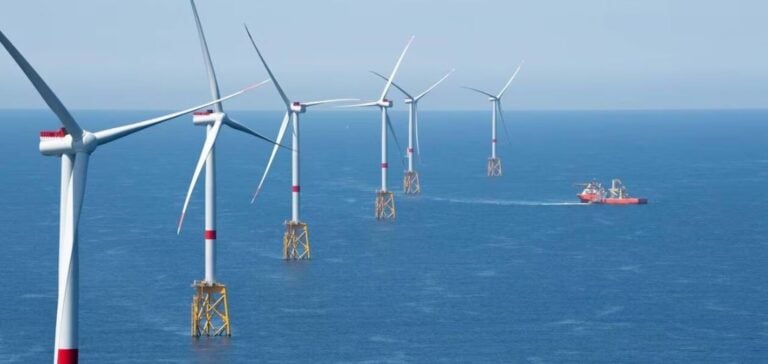RWE has secured two strategic sites in the North Sea at the latest auction organized by the Bundesnetzagentur, marking a significant step forward in the development of its offshore wind power capacity.
The N-9.1 and N-9.2 sites, located off the German coast, will generate 4 GW of power, or 2 GW per site.
This acquisition is in line with RWE’s growth strategy, which aims to triple its offshore wind capacity to 10 GW by 2030.
Partnership with TotalEnergies and investments
The planned partnership with TotalEnergies could maximize the efficiency of these projects, capitalizing on the combined expertise of the two companies.
RWE invested 250 million euros to secure these sites, underlining the importance of these locations in supporting Germany’s decarbonization objective.
The sites, located close to the Netherlands’ exclusive economic zone, offer a geographical advantage for the export of green electricity.
Development schedule and network connections
Final investment decisions (FID) for these projects are expected in 2027 and 2028, with construction scheduled to start in 2029 and 2030.
Full commissioning is scheduled for 2031 and 2032.
These projects will benefit from a guaranteed connection to the German electricity grid, a crucial element for their effective integration into the national energy mix.
RWE continues to expand in offshore wind energy
RWE, already a major player in offshore wind power with six wind farms in operation off the German coast, continues to expand its influence in the sector.
In addition to these new projects, RWE is also involved in the construction of major offshore wind farms, including the 1.6 GW Nordseecluster and the 1.1 GW Thor project in Denmark.
These projects contribute directly to Germany’s ambition to reduce its greenhouse gas emissions by 65% by 2030.
Germany’s offshore wind industry is booming, and new acquisitions by RWE and TotalEnergies illustrate the market’s momentum.
Competition for offshore sites is becoming increasingly fierce, driving companies to secure strategic locations to meet the growing demand for renewable energy.
Partnerships and regulatory support
RWE’s collaborative approach with TotalEnergies reflects a growing trend in the sector, where partnerships enable risks to be spread and skills to be pooled.
The German regulatory framework, notably through the support of the Bundesamt für Seeschifffahrt und Hydrographie (BSH), facilitates the development of these projects by providing detailed preliminary studies on the environmental and maritime conditions of the sites.
The N-9.1 and N-9.2 projects, which benefit from a 25-year license that can be extended to 35 years, will play a crucial role in Germany’s green electricity supply, supporting the country’s energy transition efforts.
By positioning themselves on these sites, RWE and TotalEnergies are strengthening their role as leaders in renewable energy production in Europe, while meeting the challenges of decarbonization.






















